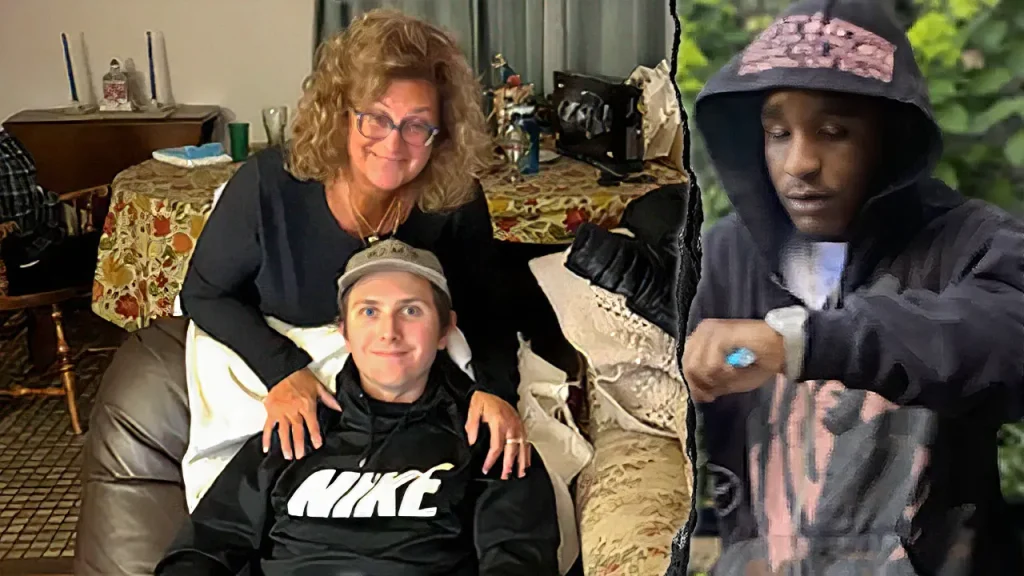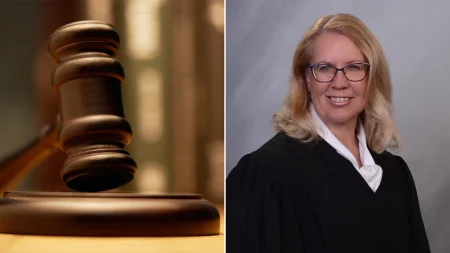Tragic Violence in DC: Congressional Intern and Teen Girl Killed by Same Suspect
In a series of heartbreaking events that have shaken Washington, D.C., a congressional intern and a teenage girl lost their lives within days of each other, allegedly at the hands of the same individual. Eric Tarpinian-Jachym, a 21-year-old intern working for Republican Representative Ron Estes of Kansas, was shot on June 30 in Northwest Washington. Despite being rushed to a hospital, he succumbed to his injuries the following day. Just days later, on July 4, 17-year-old Zoey Kelley was found unconscious with a gunshot wound in a D.C. home. First responders pronounced her dead at the scene. These two seemingly unconnected tragedies have now been linked through their alleged perpetrator, creating a troubling narrative about violence in the nation’s capital.
The Metropolitan Police Department recently revealed that Naqwan Lucas, already named as a suspect in Tarpinian-Jachym’s murder, has now been charged with the premeditated first-degree murder of Kelley. This connection between the two killings has intensified the urgency of the ongoing manhunt for Lucas, who remains at large despite the serious charges against him. Two other suspects in Tarpinian-Jachym’s killing—Jailen Lucas and Kelvin Thomas Jr.—were arrested in early September, as announced by U.S. Attorney Jeanine Pirro. Both have violent histories in family court, though their juvenile status places certain limitations on the information available about their backgrounds. The search for Naqwan Lucas continues, with Metropolitan Police Department Chief Pamela Smith expressing confidence that he will eventually be apprehended.
The shooting that claimed Tarpinian-Jachym’s life also injured two others—a woman and a 16-year-old boy—who fortunately survived their wounds. This incident represents not just the loss of a promising young professional but also highlights the broader issue of gun violence affecting Washington, D.C. Tarpinian-Jachym had traveled to the capital to serve the public through his internship on Capitol Hill, embodying the civic-minded spirit that draws many young people to government work. Instead of returning home with valuable experience and memories, his life was cut tragically short in what police have characterized as a senseless act of violence. His death marked the 85th homicide in D.C. at that time, a sobering statistic that underscores the persistent challenge of violent crime in the city.
The pain of these losses extends far beyond the immediate circumstances of the shootings, reaching deeply into the lives of family members left to navigate their grief while seeking justice. Tamara Jachym, Eric’s mother, spoke poignantly about her son’s death in an interview, noting that he likely felt safe in what he considered a “decent area” of the city at a relatively early hour of the night. Her comment reflects the shattered sense of security that violent crime creates, not just for victims and their families but for communities as a whole. She also expressed an urgent concern that without swift apprehension, the perpetrators would continue to harm others—a fear that appears to have been realized in Zoey Kelley’s subsequent death.
The dual tragedies have prompted renewed discussions about crime and public safety in Washington, D.C. Tamara Jachym criticized the D.C. Council for what she perceived as treating violent crime like a “joke,” suggesting frustration with the city’s approach to criminal justice and public safety. This sentiment resonates with ongoing debates about how best to address violence in urban centers across America, particularly in high-profile locations like the nation’s capital. The proximity of these killings to centers of national power—with one victim working directly in Congress—adds another dimension to these concerns, raising questions about the safety not only of residents but also of the thousands who come to Washington to participate in government and civic life.
Chief Smith’s comments during the September press conference sought to provide some measure of reassurance both to the victims’ families and to the public. She acknowledged the tremendous loss suffered by Tarpinian-Jachym’s loved ones while expressing hope that the arrests would bring “some sense of peace” amid their ongoing grief. Her confidence about eventually apprehending the third suspect represents not just a commitment to closing this particular case but also speaks to broader efforts to address violent crime in the district. As the community continues to grapple with these losses and the implications they hold for public safety, the pursuit of justice for Eric Tarpinian-Jachym and Zoey Kelley remains at the forefront of law enforcement priorities in Washington, D.C., serving as a painful reminder of the human cost of violence and the ongoing work needed to create safer communities for all.








